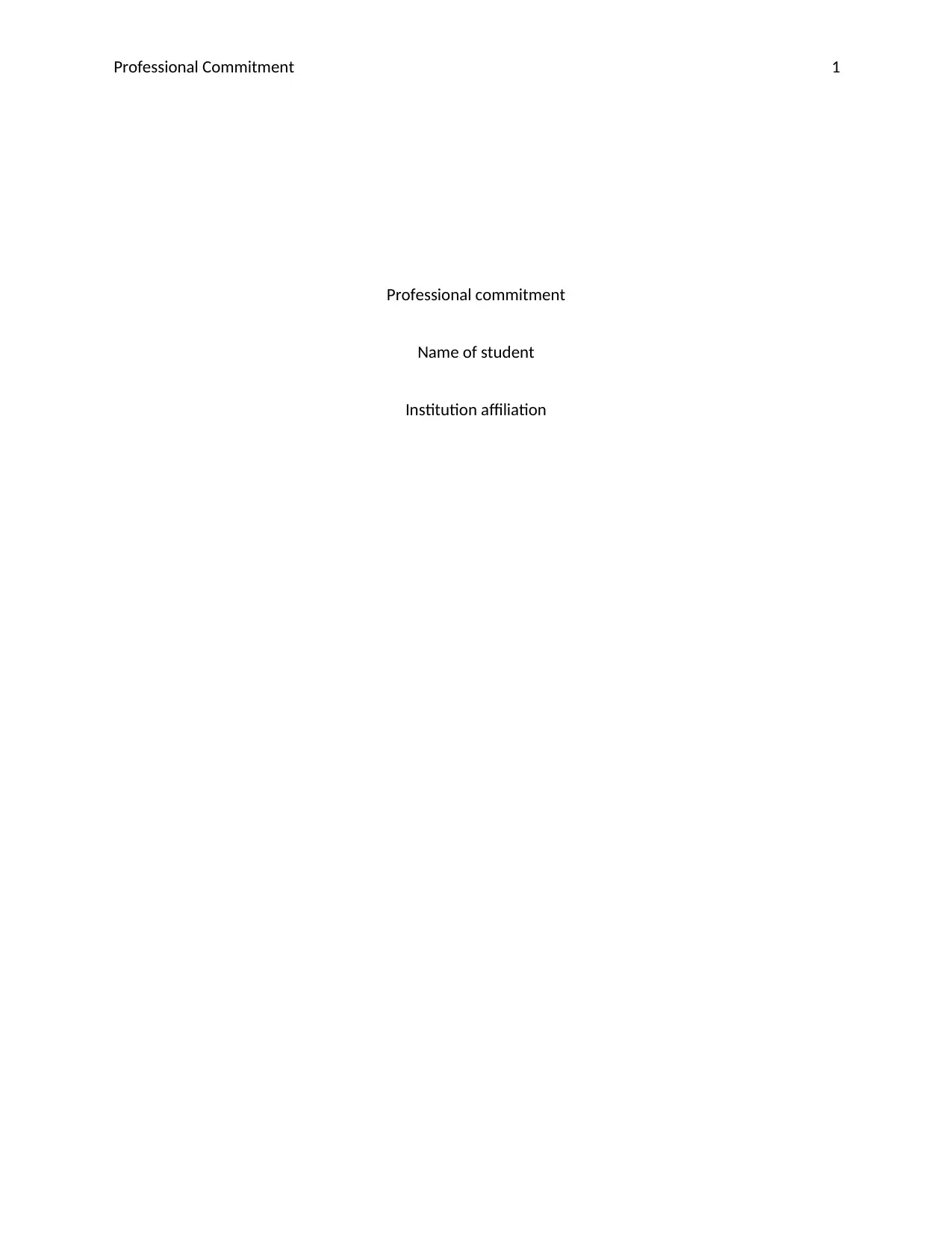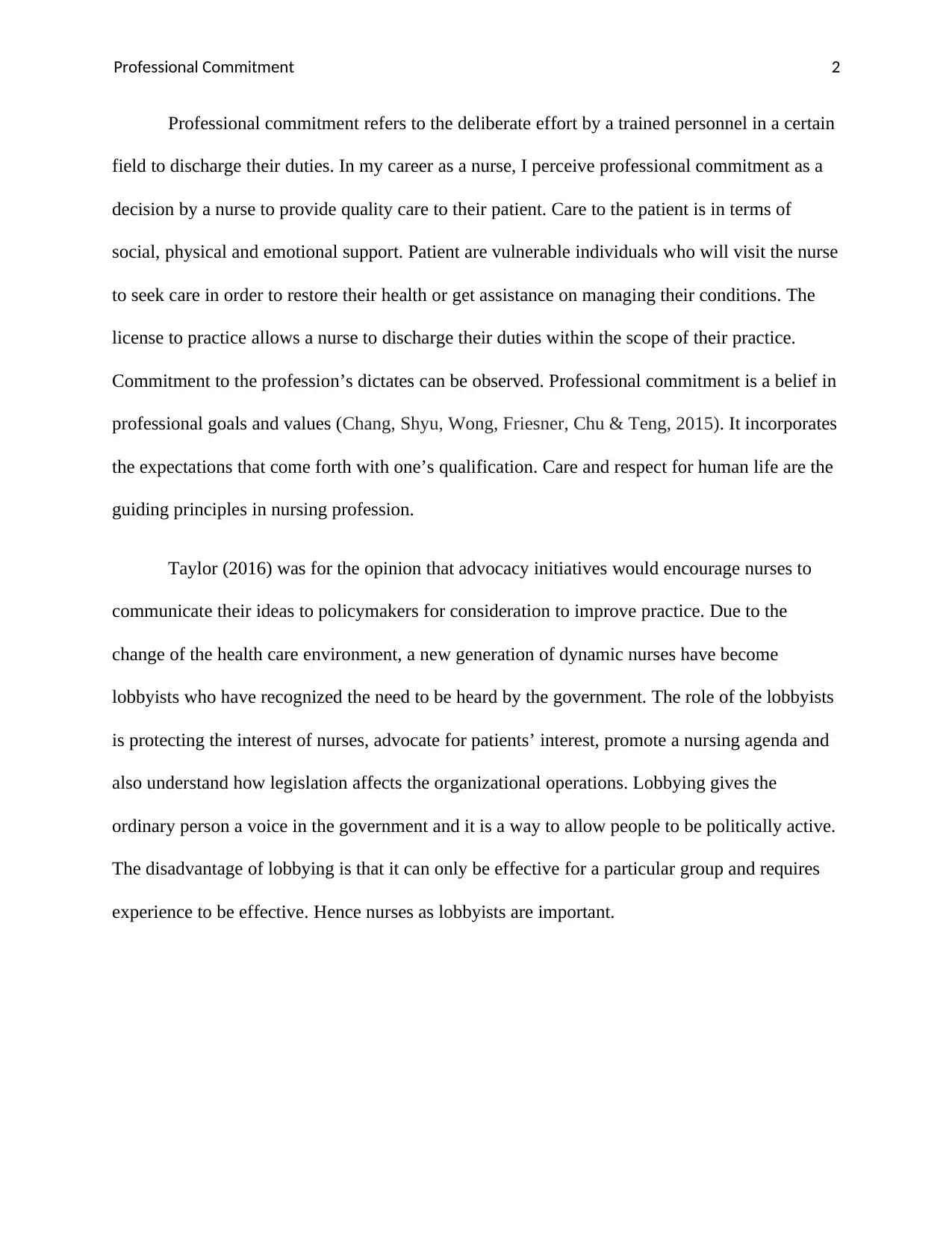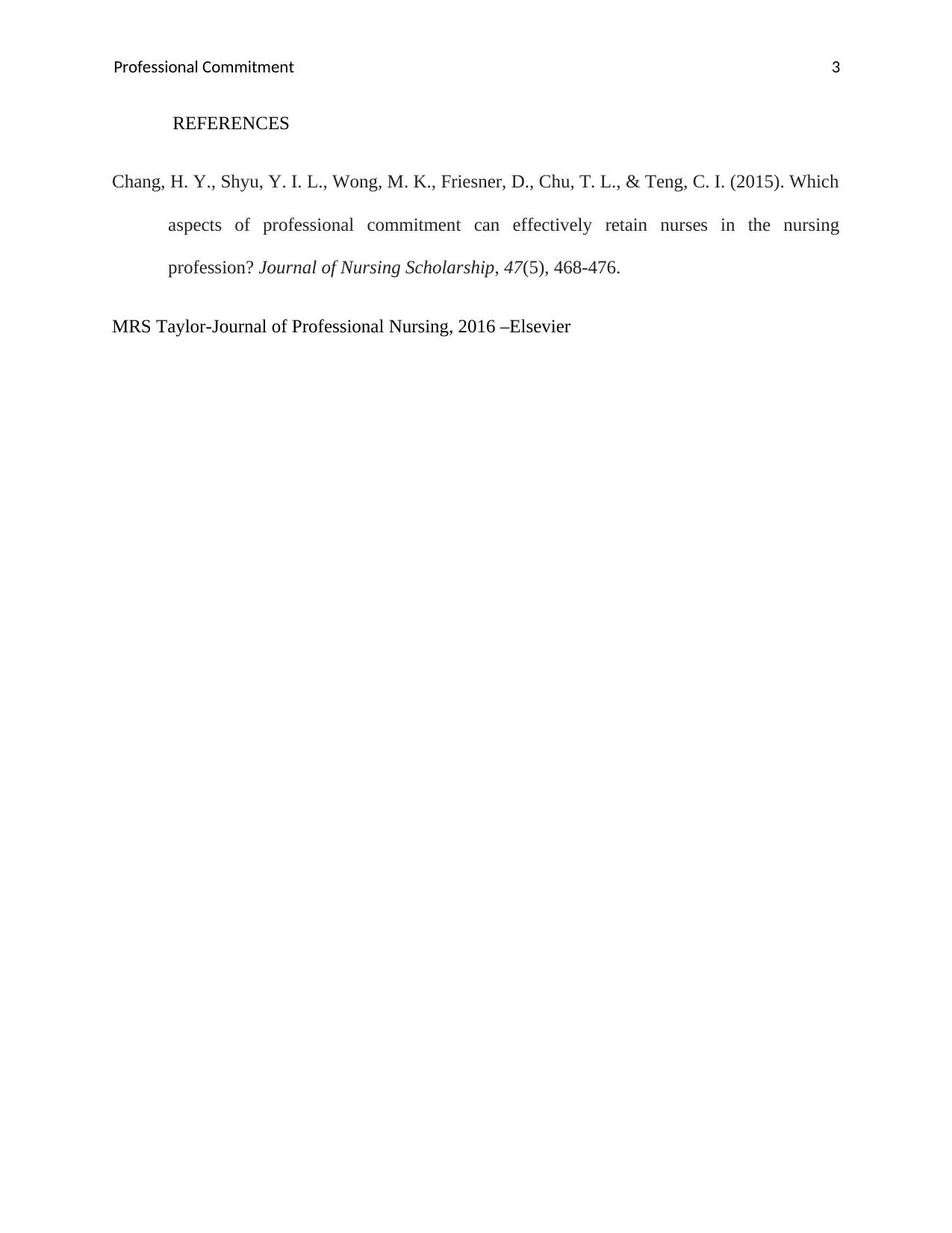Professional Commitment in Nursing: A Comprehensive Analysis
VerifiedAdded on 2023/01/18
|3
|395
|29
Homework Assignment
AI Summary
This assignment delves into the concept of professional commitment within the nursing profession, emphasizing its significance in delivering quality patient care. The author defines professional commitment as the dedication of a trained nurse to fulfill their duties, encompassing social, physical, and emotional support for patients. The assignment highlights the importance of advocacy and lobbying in the healthcare field, recognizing the need for nurses to actively engage with policymakers to improve practice and protect patient interests. The author believes that nurses as lobbyists are essential for the growth of the nursing profession, allowing them to have a voice and influence on the government. References from scholarly articles are included to support the arguments presented. The assignment also touches on the role of professional commitment in nursing, and its impact on the healthcare environment. The author emphasizes that nurses have a responsibility to communicate their ideas to policymakers in order to improve practice and protect patient interests.
1 out of 3










![[object Object]](/_next/static/media/star-bottom.7253800d.svg)